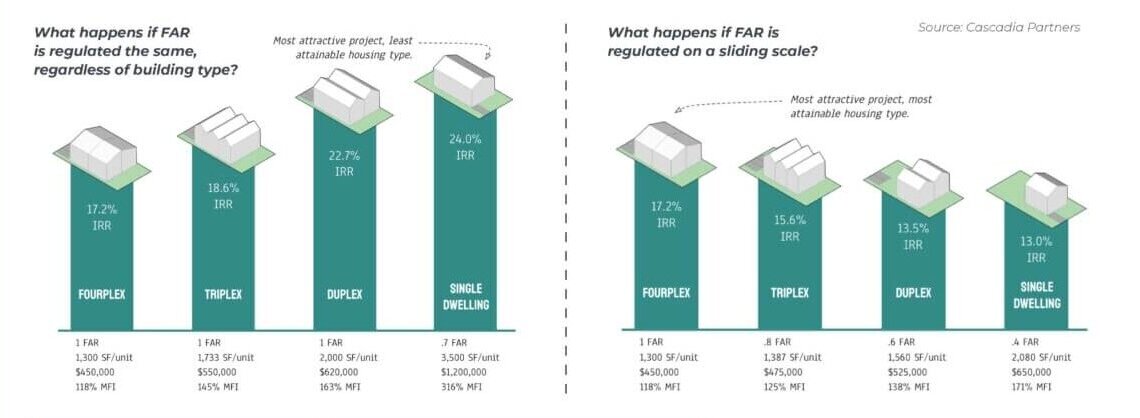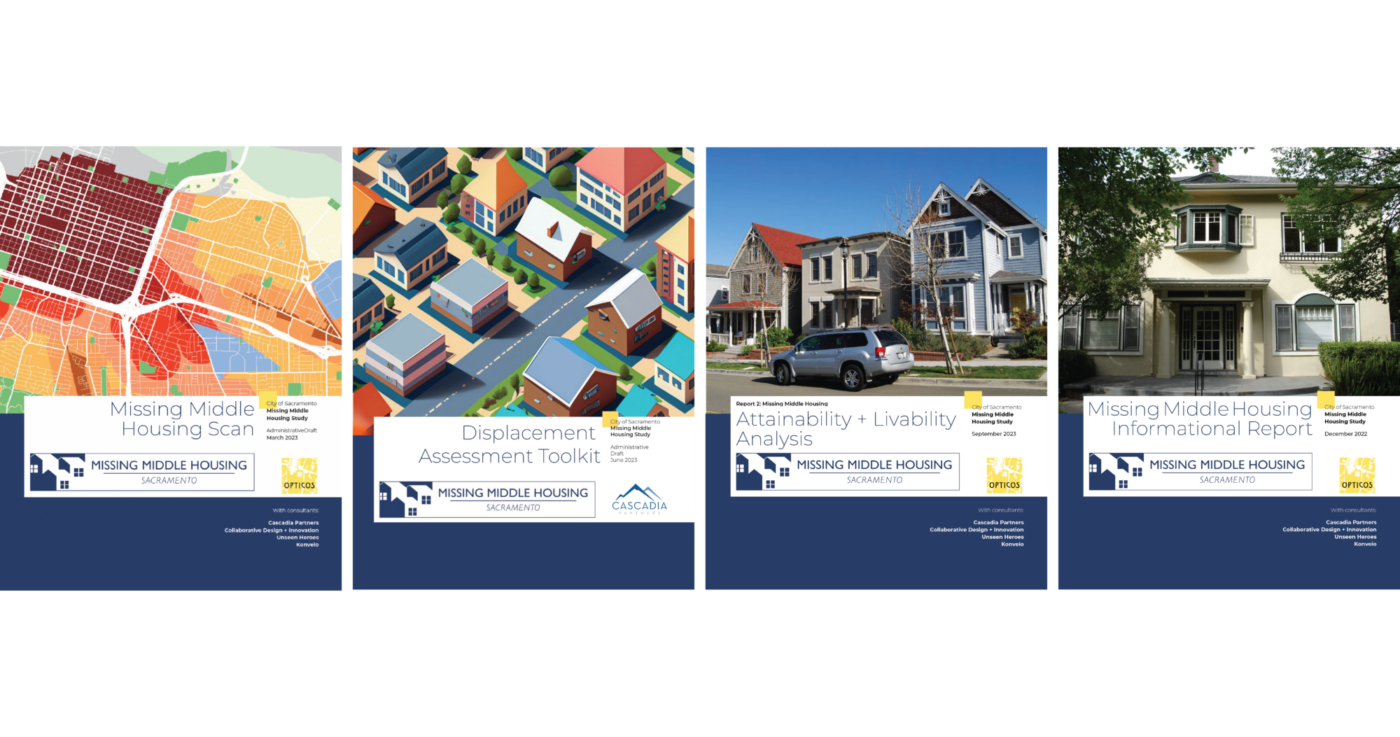-
Product: Informational Report, Analysis + Recommendations
-
Size
Sacramento, CA, Citywide
-
Community Engagement
Community Workshops and Walking Tour
Citywide Missing Middle Housing Implementation Study
Sacramento, CA
The City of Sacramento is at the vanguard of zoning and policy reform to address California’s severe housing crisis. At the direction of City Council, a multi-year study is underway to enable Missing Middle Housing citywide as part of a broader effort to increase the supply of lower-cost, attainable housing. The study is coordinated with ongoing updates to the General Plan and the Climate Action and Adaptation Plan.
The study includes in-depth analysis to identify physical constraints, feasibility hurdles and regulatory barriers for Missing Middle in Sacramento, and assesses the risk of potential displacement. The findings, refined through extensive community feedback at all key milestones, will inform zoning and policy changes to enable attainable, lower-cost housing calibrated to existing contexts; employ anti-displacement strategies, and introduce targeted programs to promote long-term housing affordability, increase homeownership, and create opportunities for local investment.
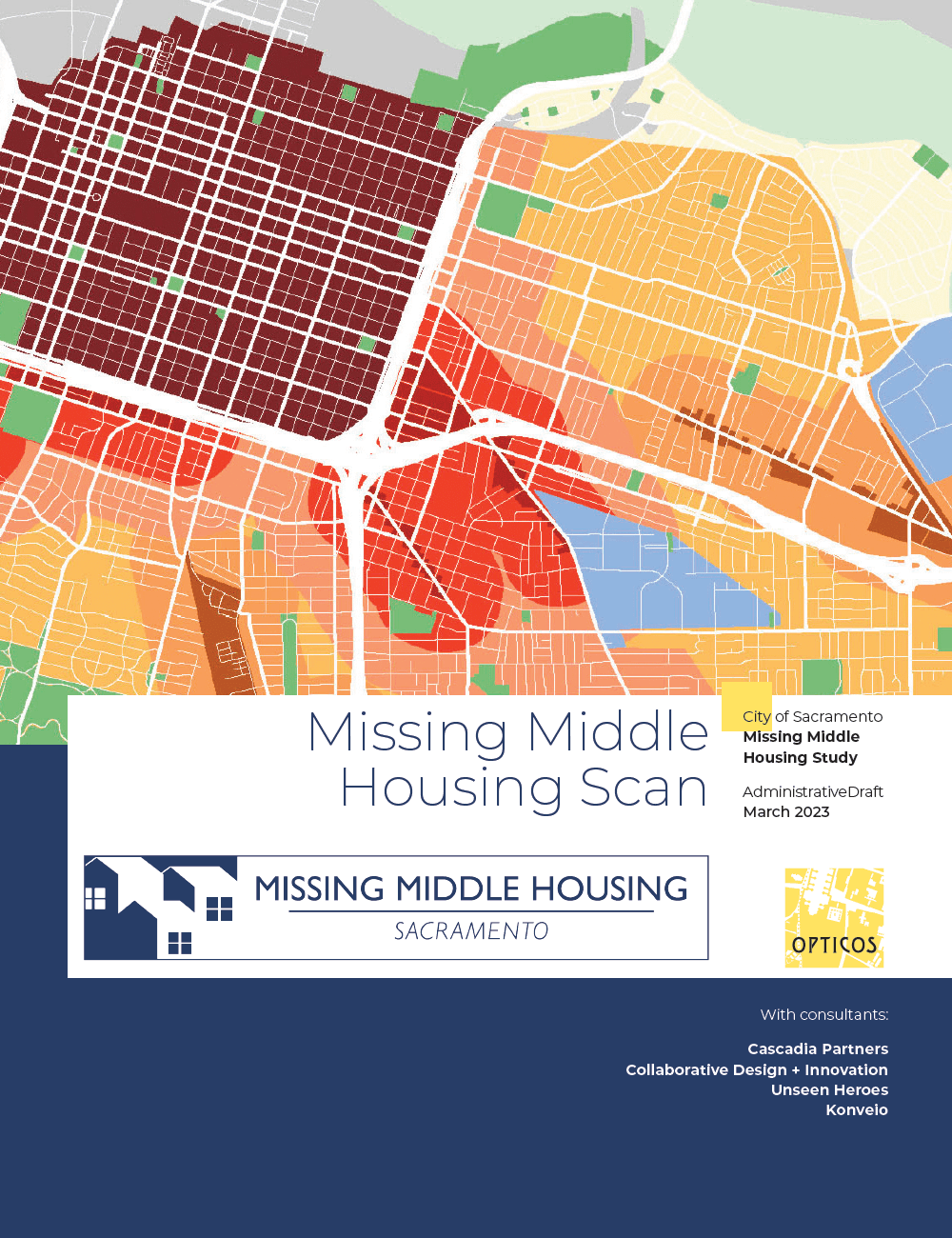
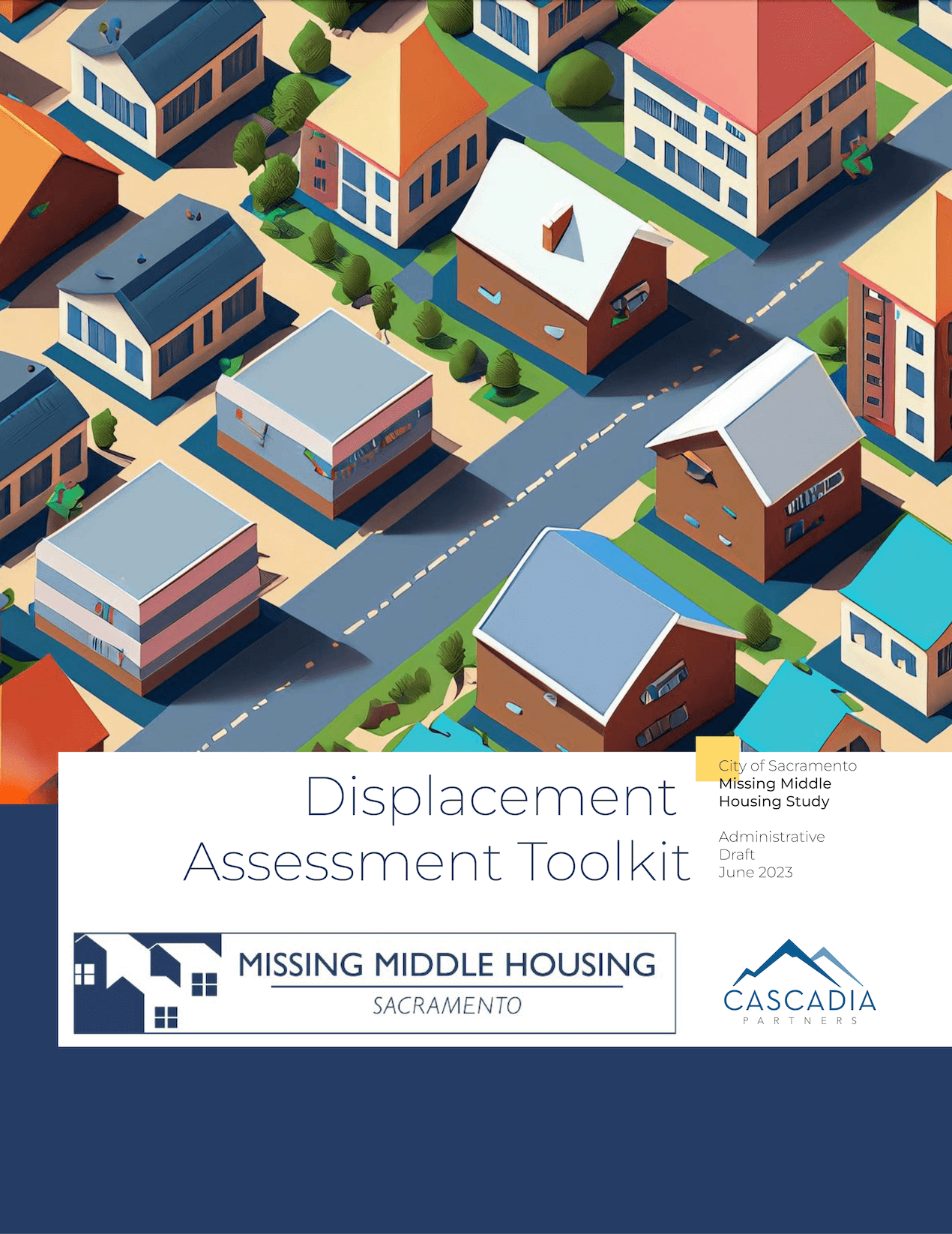
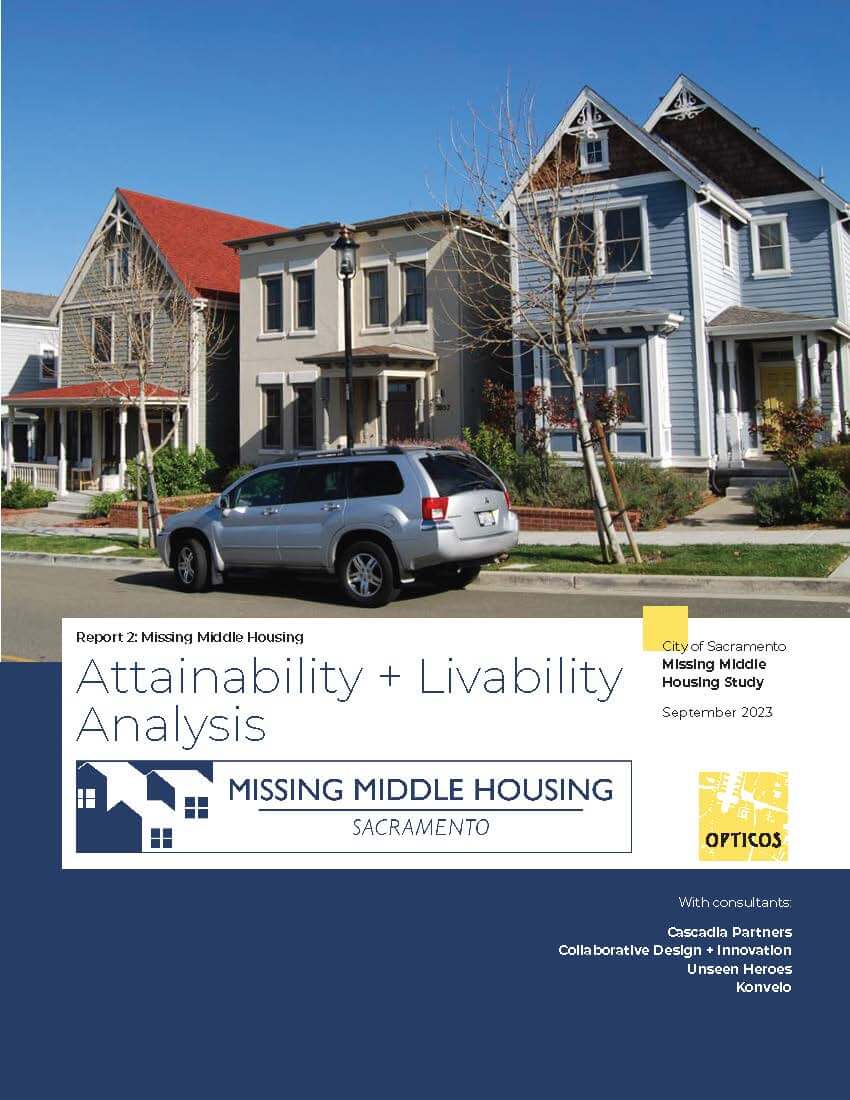
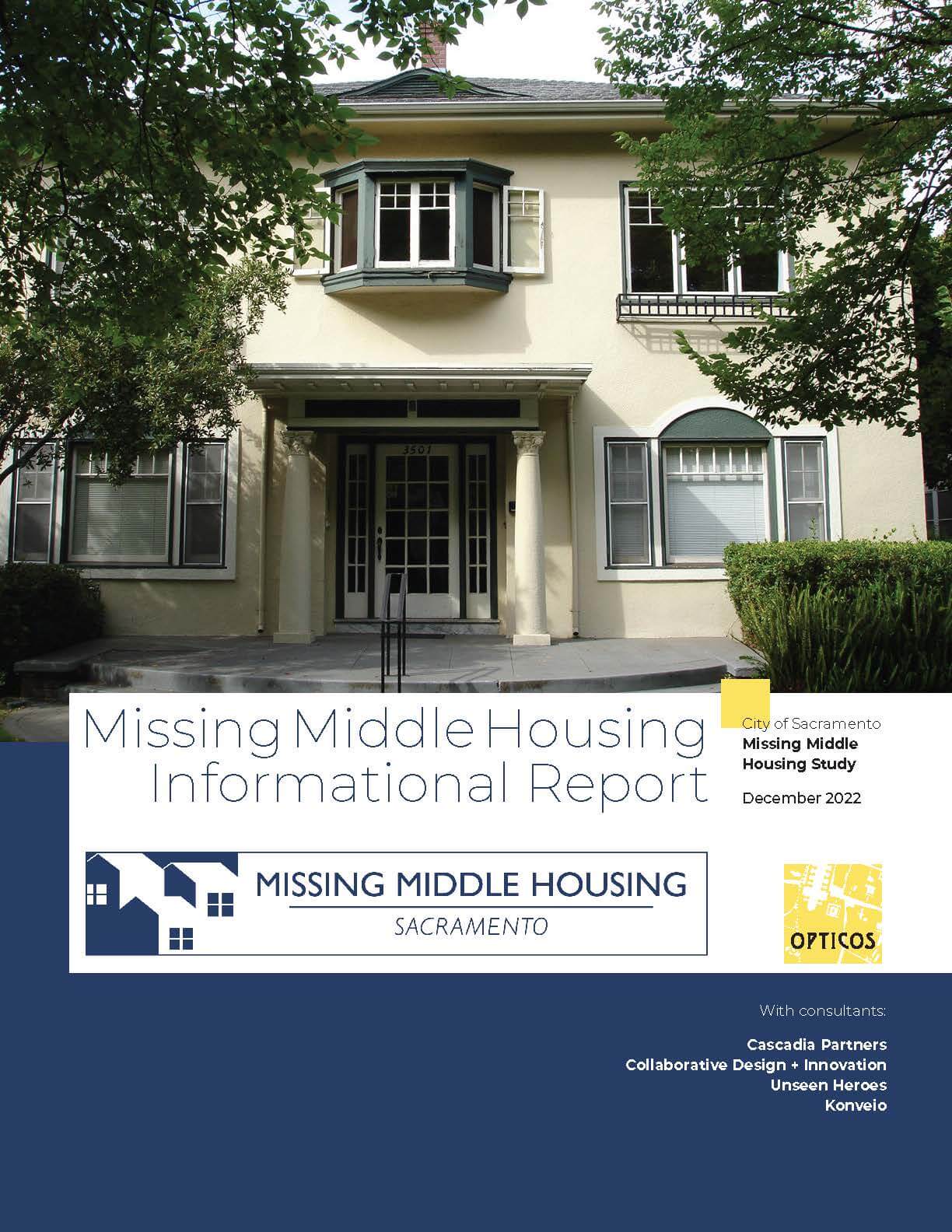
Four Key Reports Summarize the Study
- Missing Middle Housing Informational Report
- Attainability and Livability Analysis
- Displacement Assessment Toolkit and Strategies
- Recommendations for Policy, Programs and Zoning
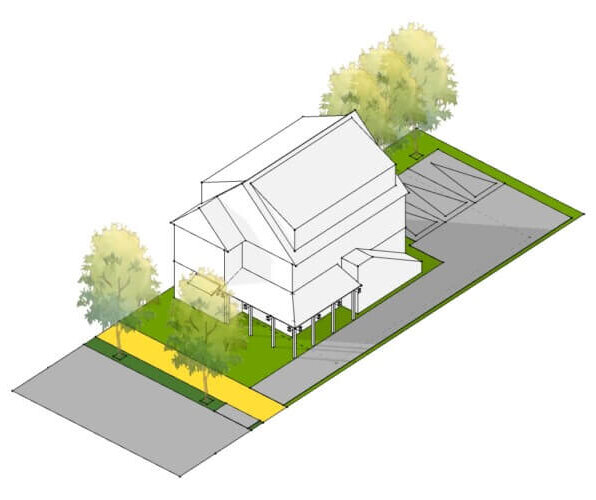
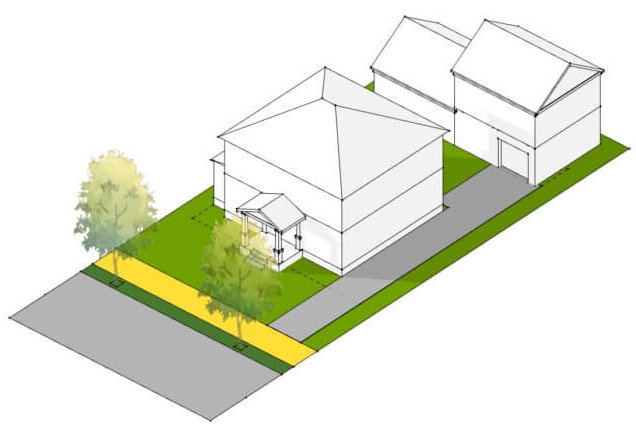

Built Form Recommendations
Place-based, context-specific regulations for built form will ensure Missing Middle housing will be compatible in scale and form to existing homes, and promote walkability and interaction among neighbors.
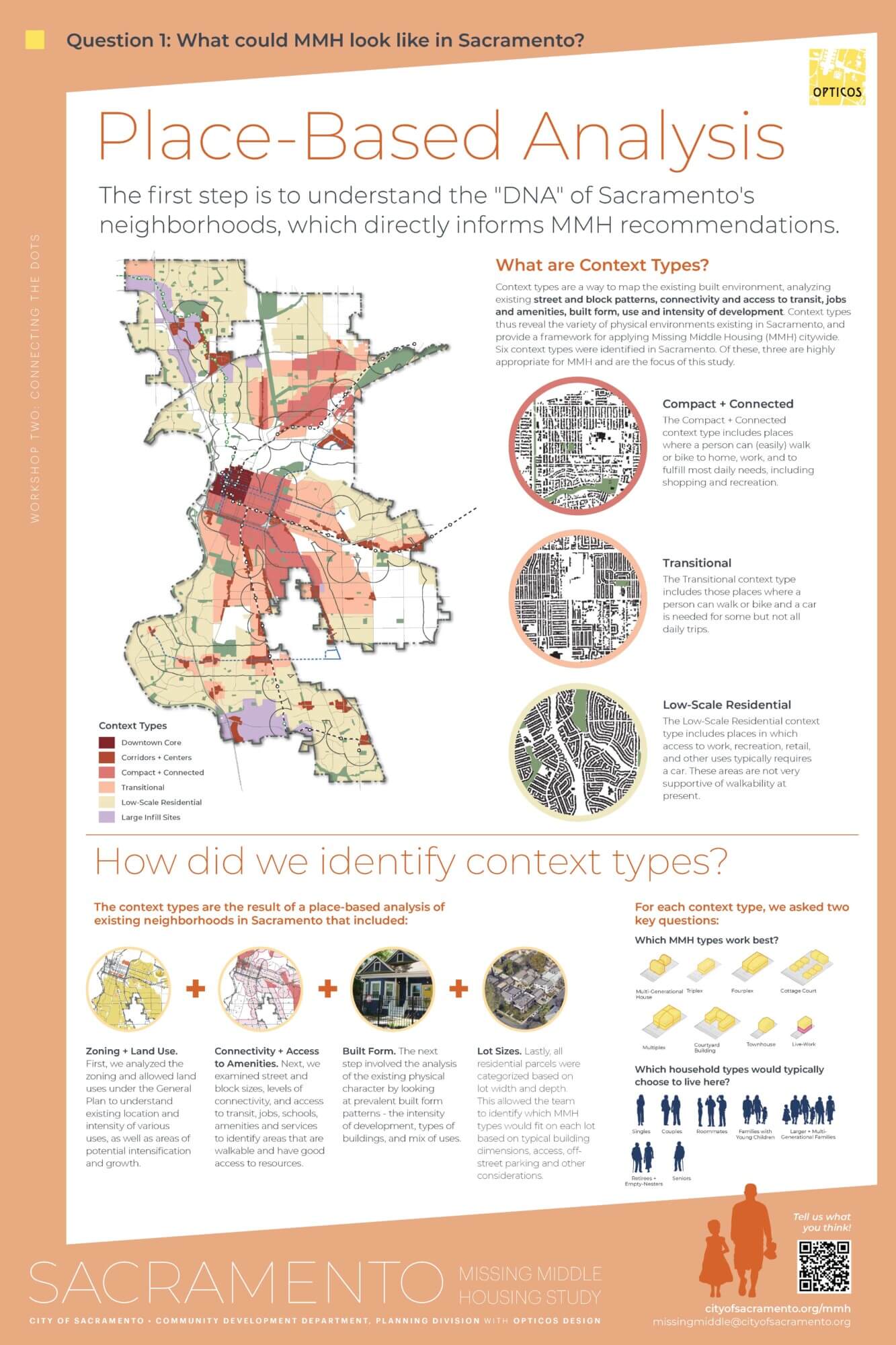
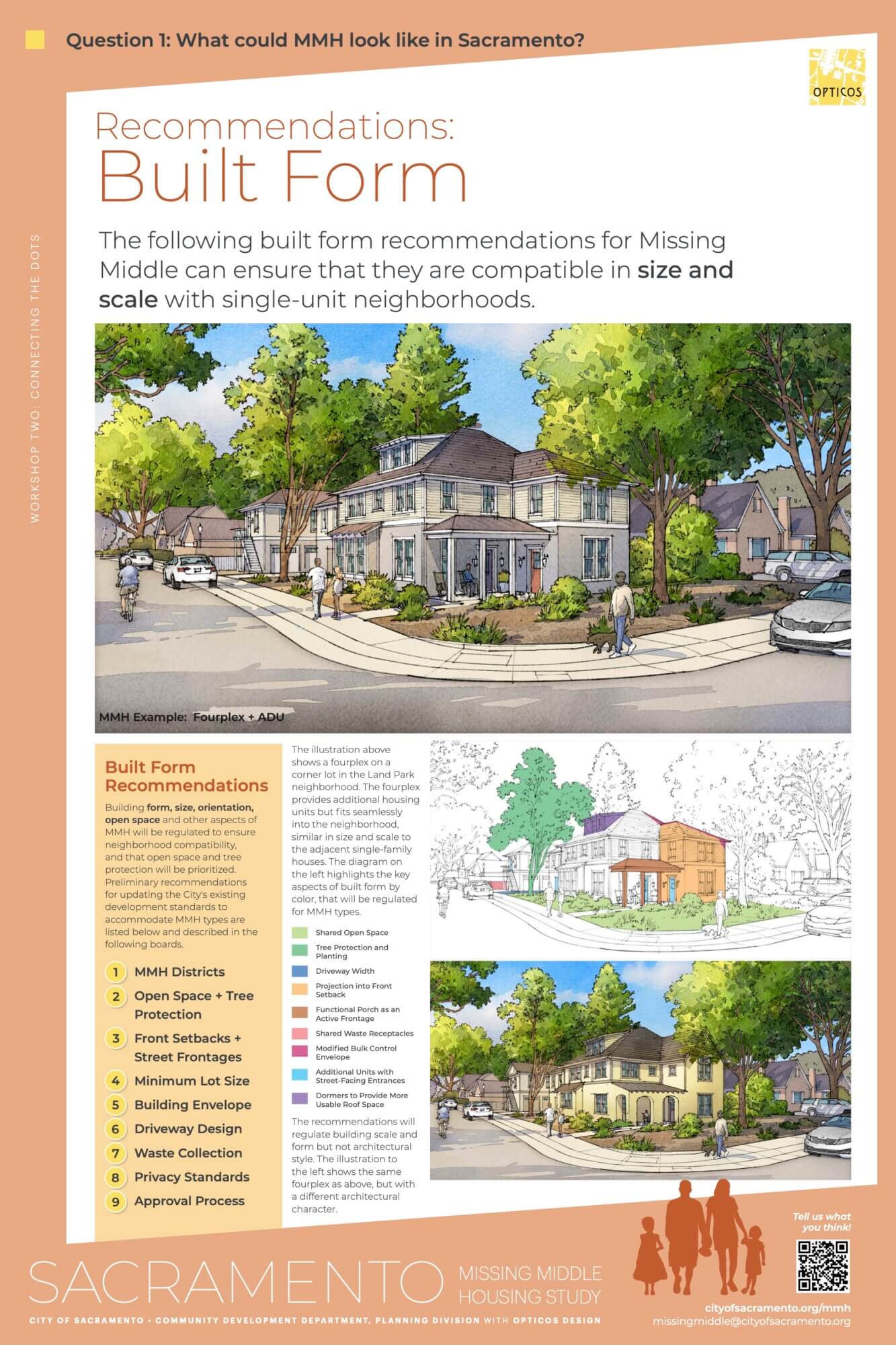
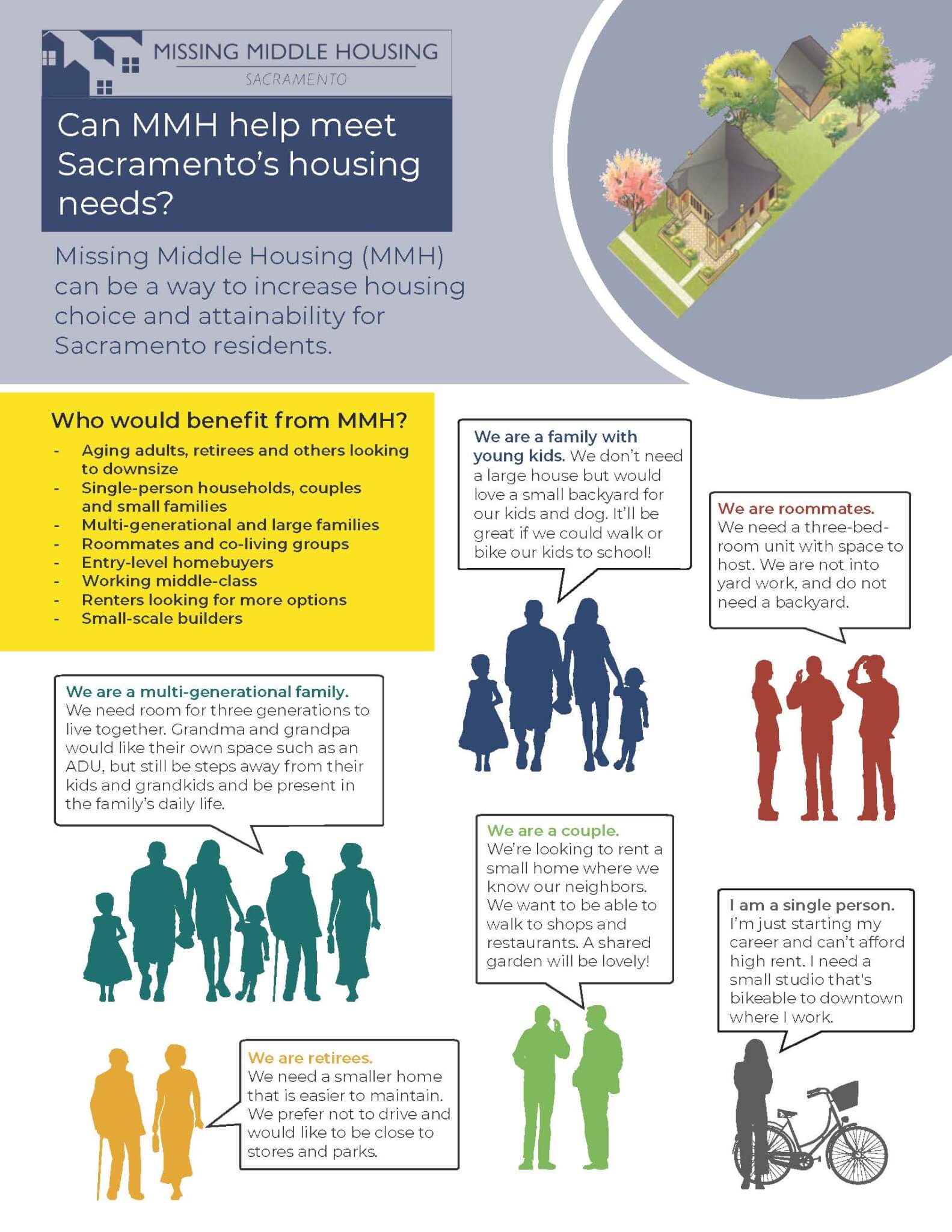
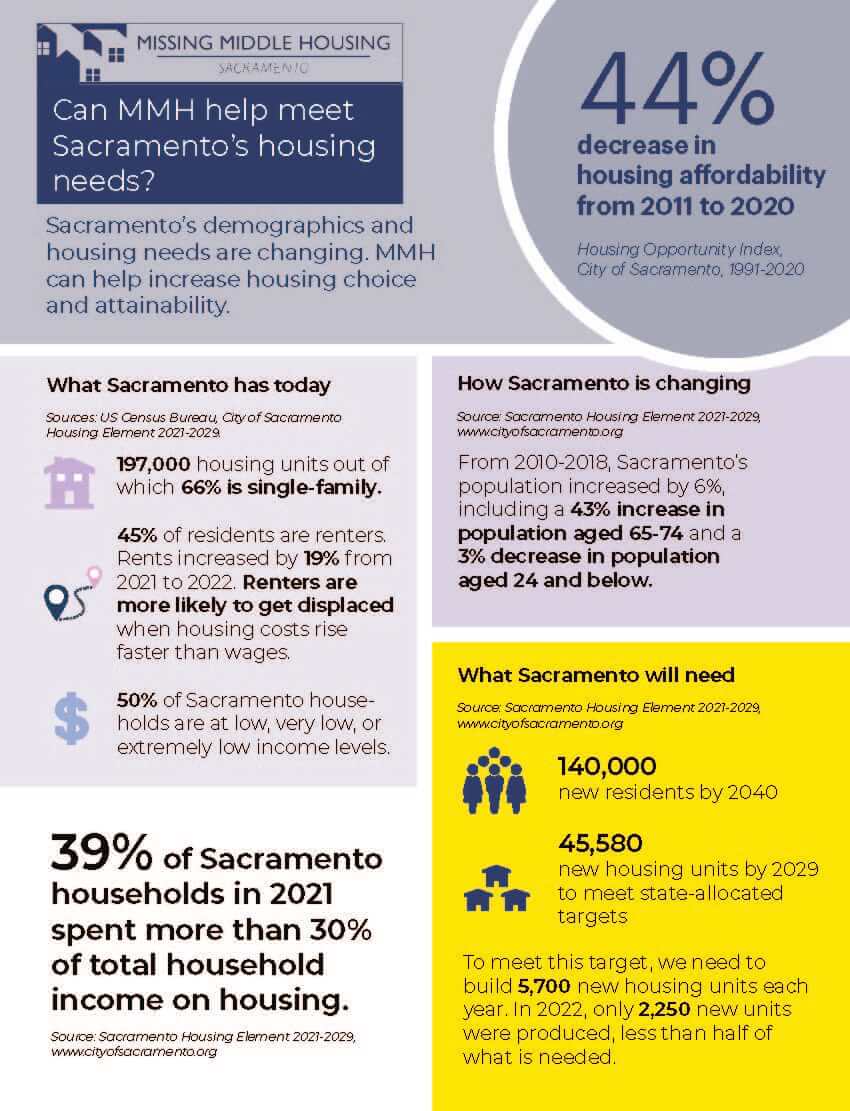
The recommendations for enabling Missing Middle are based on feedback from a wide range of community voices. Project outreach included listening sessions with stakeholder groups, 3 in-person workshops, 4 zoom webinars, and 2 self-guided month-long digital workshops.
Recommendations Grounded in Market Feasibility + Long-Term Attainability
A critical goal of the MMH Study is to ensure that the Missing Middle Housing types will be attainable to middle-income households without subsidy. Regulating with Sliding Scale FAR is recommended to help level the playing field for Missing Middle Housing types.
A local affordability bonus program targeted at MMH projects will create incentives for deeper affordability and produce long-term, deed-restricted affordable units.
